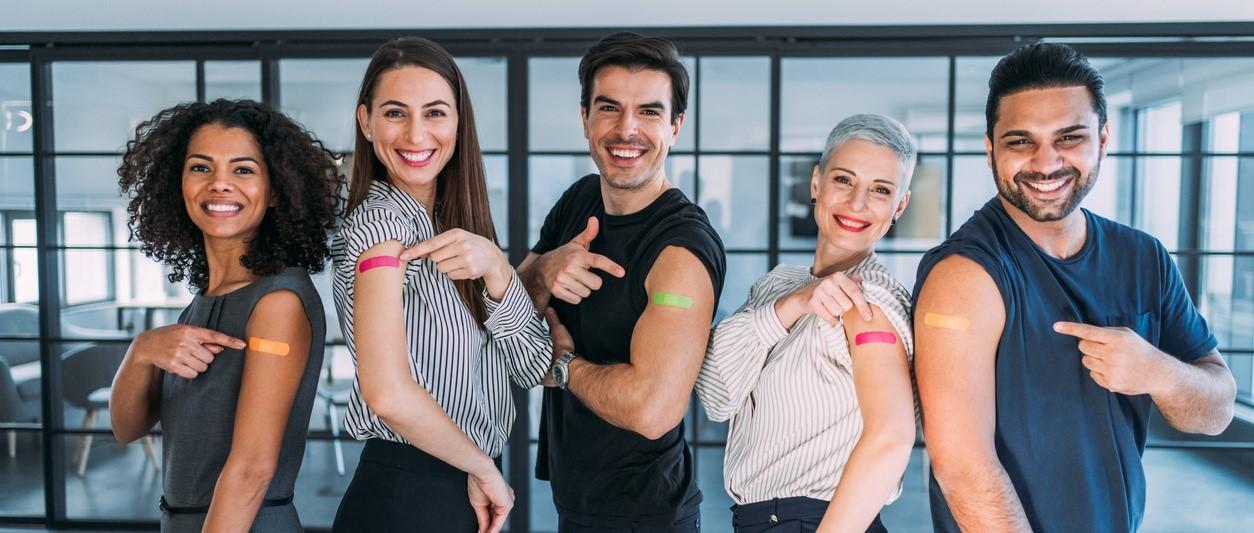
What is a clinical trial?
Peer reviewed by Dr Krishna Vakharia, MRCGPAuthored by Amberley DavisOriginally published 25 May 2023
Meets Patient’s editorial guidelines
- DownloadDownload
- Share
- Language
- Discussion
We need clinical trials to understand how new treatments work on people. If successful, they may eventually be used in the real world by those who need them for a better quality of life. Find out all about how clinical trials work, along with personal insights from Alice - who has participated in around 50 trials over his life.
In this article:
Continue reading below
Clinical trials for medical advances
From household painkillers to cancer cures, all medical treatments are tested in clinical trials before they can be used in the real world. After thorough testing in the lab, clinical trials recruit people to try out treatments and study their effects. It's a crucial stage in every new medical advance - and one that's handled carefully to protect the health of those who take part as much as possible.
Alice's story - 30 years a trial participant
Graphic and web designer Alice is somewhat of a clinical trial expert - his experience as a participant spans 30 years. During this time, Alice has used big cash injections from trials to supplement his DJing career and has used his time on trial wards to work on various projects - from learning web design to helping design outfits for the Spice Girls.
"I've taken part in between 40 and 50 clinical trials. Since I was around 20 years old until five years ago, I was joining clinical trials at least twice a year - and three is the maximum you can do annually.
"Money was the motivation! As it is for a lot of people. There are other reasons for joining a clinical trial - it can also be very interesting to glimpse what treatments researchers are developing - but for me, mainly it was good, easy money. Trials also give you time to do things that you otherwise couldn't. I took my computer into one trial and said to myself, in six weeks' time I will know how to build a website, and that's what I did."
How do clinical trials work?
There are four different phases of clinical trials which test the safety and effectiveness of a new treatment in different ways. The types of things a clinical trial might look at includes:
Testing new treatment drugs for a disease or condition - including new doses of drugs or new ways of administering them.
Testing new diagnosis methods - scans, tests, or procedures.
Finding ways to prevent diseases and conditions developing - including vaccines, medicines, or lifestyle changes.
Examining causes and risk factors for a disease or condition - including how lifestyle and genetics influence an individual's risk.
Exploring ways to improve the quality of life of people with a long-term illness.
Your eligibility for a clinical trial will depend on what it's testing. Some are looking for people with a good health record, while others seek those who have the particular condition or disease that will be studied - for example, clinical trials for asthma sufferers. Factors like your age, gender, and family medical history will also come into play.
Alice says
"I've been involved in so many different trials, including treatments for HIV before PrEP was developed and a trial to extract the painkilling qualities from cannabis, but most drug names are long and hard to remember.
"The most memorable ones involved more intrusive administrations of treatment. For example, in one trial I took a medicine as a pill, injection, and through a tube that was inserted through the nose into the stomach. For treatments like the latter, extra money is usually offered. I've also had some side effects - but nothing that lasted more than a few days, and it meant getting discharged early while getting paid for the full trial."
Continue reading below
Who conducts clinical trials?
Clinical trials are research studies led by medical professionals. Usually, the principal investigator is a doctor, and they will have a research team made up of other doctors, nurses, and other healthcare experts. These studies are often funded by academic and national medical organisations, or by private pharmaceutical companies and voluntary groups.
Where are clinical trials held?
All kinds of buildings can host clinical trials, and typically you will be staying in a hospital-style ward. For your own safety, you won't be able to leave the vicinity until it is considered safe to do so, but it's uncommon to be in total isolation - you'll be with other participants, and forms of entertainment are offered or can be brought in.
Alice says
"It could be a great experience and I usually enjoyed the isolation of it. The ward beds had curtains to pull around if ever you wanted more privacy. You would hope you're going to have a bed next to someone friendly - and making friends with the nurses was also common. In most clinical trials, you could even have visitors.
"You generally couldn't exercise, as this tends to affect trial results. Some people like me sat on their beds for the majority, but there were also game rooms with things like video games, pool, and snooker.
"Even before laptops, I'd bring in my desktop, monitor, scanner, VCR, portable TV, PlayStation...people would joke about how much stuff I brought with me, but they would all eventually be sharing it for the fun. Because I was so prepared, I loved it."
Continue reading below
How long do clinical trials last?
This varies significantly, ranging from one day to weeks and even months. It's worth noting that, if a clinical trial does last months, it's likely you'll visit and be discharged from the research site in intervals, rather than spend that whole period on the ward. Each clinical trial will be upfront about exactly how long it will last, and you can opt for shorter ones if you prefer. For Alice, the longer stays held the most appeal.
Alice says
"The shortest I've participated in was one day, and the longest were in six-week solid blocks. I prefer the latter because I enjoy the time they give you for learning and other tasks - and they also pay well."
Clinical trials - no Frankenstein's lab
The idea of taking part in a clinical trial may feel scary for some people, but consenting to taking part doesn't mean relinquishing all control to the researchers. In the UK, regulations go to great lengths to make trials safe. This includes:
Ethics committees - that review each trial to look after your "rights, safety, dignity and wellbeing" as a participant1.
An informed consent process - to provide you with all the information you need so that you fully understand the risks and potential benefits of taking part.
The right to withdraw at any time - signing a consenting document isn't a legal contract, and you can change your mind at any time.
Alice says
"I have a very positive outlook on clinical trials. When people find out I take part, some reactions can be negative, because they have this idea that you're essentially a guinea pig - or they imagine Frankenstein's lab! But it's not the case that they can do anything with you they wish, and in my experience, I find it to be highly regulated."
To reduce his risk of injury, Alice had his own criteria for which clinical trials he'd be happy to join.
"For example, I've always asked the researchers how many people a drug has been tested on before. There are many rounds of clinical trials, so if you prefer to not be one of the very first people trialling treatment, you can find one where it has already safely passed previous phases involving people. Although, if you are among the first tested, the dose is usually very small."
He adds that, while there are health considerations, there are also health positives.
"You get amazing health screenings which give you a very informed picture of your health - and you can act on the information you find. From blood tests, I found out that I had a low platelet count - a condition called thrombocytopenia which can increase your risk of problems such as bruising and excessive bleeding."
How to take part in clinical trials
It's usually a matter of searching online for current clinical trials. Most researcher websites will provide lots of information and application forms, as well as contact details if you have any more questions.
For Alice and others who join multiple studies, word of mouth from other people they meet on trials can also give top insights - this could be anything from how much a trial pays or it's perceived shortcomings, to handy details like it having a five-star chef serving delicious food.
Further reading
Patient picks for Health research

Health research
Clinical research FAQ
The UK health sector has made sure it is one of the best in the world by understanding more about the conditions that affect us. It has improved and saved countless numbers of lives. Those who take part in clinical research may not just contribute to helping society, their friends, or their family; they may also help save themselves.
by Lawrence Higgins

Health research
A guide to clinical trials
Before a medicine is licensed for use in patients with any illness or condition, it has to go through several stages. Every element is carefully monitored and safety is at the heart of every phase.
by Dr Sarah Jarvis MBE, FRCGP
Continue reading below
Article history
The information on this page is peer reviewed by qualified clinicians.
Next review due: 20 May 2027
25 May 2023 | Originally published
Authored by:
Amberley DavisPeer reviewed by
Dr Krishna Vakharia, MRCGP

Ask, share, connect.
Browse discussions, ask questions, and share experiences across hundreds of health topics.

Feeling unwell?
Assess your symptoms online for free
Sign up to the Patient newsletter
Your weekly dose of clear, trustworthy health advice - written to help you feel informed, confident and in control.
By subscribing you accept our Privacy Policy. You can unsubscribe at any time. We never sell your data.